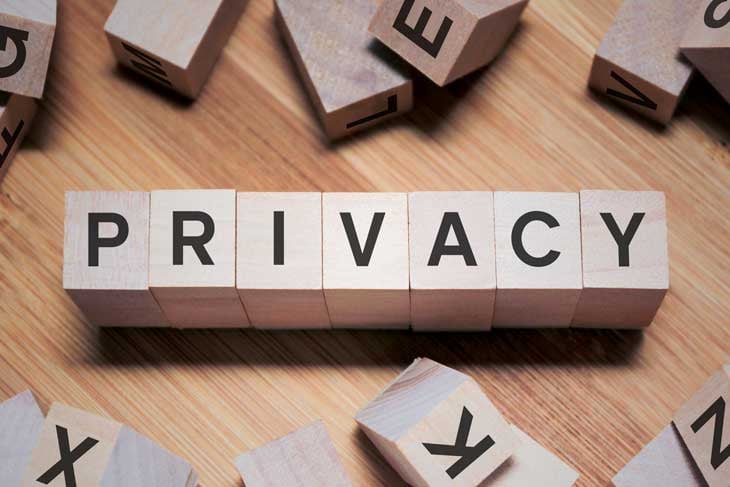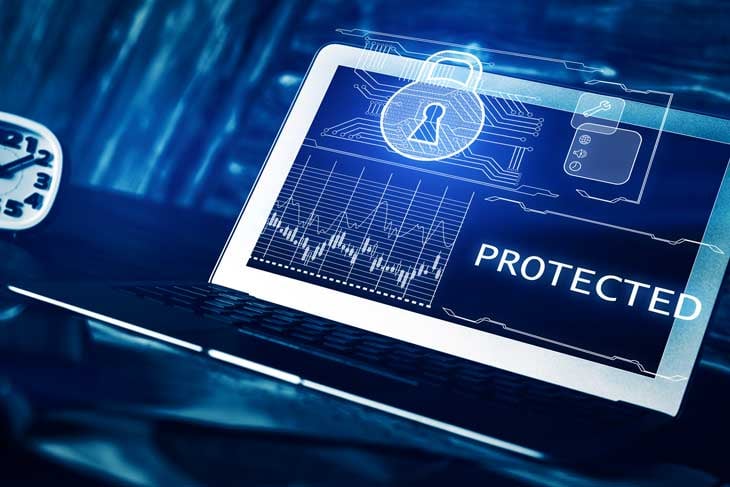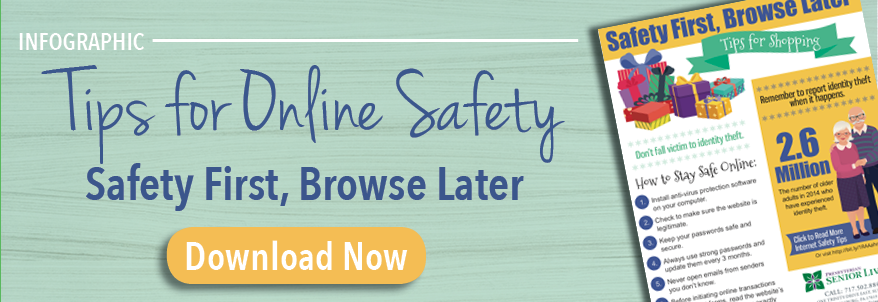
Cybercriminals, Hackers, and Spies: Are You Really Safe Online?
With more and more consumers deciding to do their shopping online, and for good reason, identity theft is at an all time high. Learn how you can protect yourself from these sneaky swindlers and safeguard your private information.
Millions of people fall victim to Internet-related crimes each year, resulting in $32 billion in direct financial losses. Seniors are the most vulnerable to these attacks, often targeted due to having large nest eggs and being less likely to report fraud when it happens. But it's not just online transactions you have to worry about. With recent reports of brick-and-mortar retailers being hacked, shopping on premises doesn't make consumers feel any more secure. While nothing is 100% foolproof, knowing the risks—whether you are shopping online or offline—and how to protect yourself from scammers will help make you less of a target for these cyber no-gooders.
Questions to Ask While Shopping Online
It's easy to be scammed when shopping online. Data leaks, viruses, and phishing expose your personally identifiable information (PII).
Examples of PII include:
- First or last name
- Date of birth and age
- Social security number
- Country, state, or city of residence
- Credit card information
- Medical information
- Telephone numbers and email addresses
- Race and gender
Does the website look shady?
Nowadays, anyone can put up a website and sell goods online, but just because the site looks legitimate, doesn't mean it actually is. Oftentimes, fraudsters will use ecommerce sites as a way to steal your PII and credit card information. Before engaging with any online retailer, do your research first.
Check with the Better Business Bureau (BBB) to see if the retailer is legitimate or if there have been any complaints filed against them. The BBB offers consumers the ability to read free reports, customer reviews, and search for complaints. You can also check to see if the business is BBB accredited. While businesses are not obligated to seek accreditation, those that are accredited have openly made a commitment to good faith practices and resolving consumer complaints.
Is there a posted Privacy Policy?
Any reputable online retailer or website that asks for your PII should have a posted privacy policy explaining how the information they collect will be used. Privacy policies are required by law for any website collecting visitor data. This transparency eases consumers' fears because the policy outlines how your information will be used, whom it will be shared with, and how you as a consumer can disable or opt-out of the transfer of your personal information while on their site. If you are unable to locate the website's privacy policy, commonly a link in the footer of the page, steer clear from filling out forms or doing any kind of online transaction with the business. In fact, exit the page immediately because it doesn't take long for savvy hackers to get what they need (even without you submitting a form on the site).
Is the website encrypted with SSL?
If the website you are visiting is selling goods, make sure the connection is encrypted. The simplest way to determine if the website is SSL encrypted is to check the URL. If the domain name is preceded by https:// as opposed to http://, then the site is secure. It's the "s" after the http that lets you as a visitor know the website is SSL compliant.
Another easy way to identify if the website you are visiting is secure is by the use of the padlock icon in the browser's location bar or you can look for a SSL Security Badge sometimes displayed at the bottom of ecommerce websites.

What You Can Do to Protect Your Personally Identifiable Information
According to Sophos, a security software and hardware company, there are two types of data loss: accidental and malicious. Accidental data loss occurs when consumers unknowingly transmit PII online or when there is a breach in security on the receiving end. Malicious data loss, or cyber attacks, occurs when hackers deliberately go after your information. Rest assured there are measures you can take to protect your personal information from these threats.
Use strong passwords
When setting up accounts online, use a combination of upper and lower case characters, numbers and symbols. Make sure your passwords are different for each account. To help yourself remember which passwords go with which account, using a password manager is always safer than keeping passwords saved in a document or spreadsheet on your computer. Remember to change your passwords every three months to throw hackers off your trail.
Never email your personal information
Be leery of emails coming from companies asking for your personal information. Reputable retailers, banks, charities, and other organizations will never ask for your PII via email. If you are ever suspicious of an email, call the company directly to verify the email came from them.
Avoid opening emails from unknown senders
Hackers are clever, often sending emails disguised as offers or even from people you think you may know. Pay close attention to who the email is from. By flipping a few characters around, hackers are able to trick you into thinking the sender is legitimate or the email is from someone you actually know. See example below:

Also, consider changing your email settings so that external content, such as images and other linked media, is blocked by default and not set to automatically download when emails are open. This helps to prevent web beacons and other malicious methods hackers use to invade your privacy and get at your personal information.
Be careful of what you post online
Social media has become a useful tool to stay connected and engage with family members and friends. However, be careful of what you post online. Hackers often target social media sites to monitor what people are talking about. What you are talking about on social may seem innocent, but those out to steal your identity or do you harm can use the information you post against you.
Keep information such as birthdates, addresses, social security numbers, and phone numbers confidential. Don't post pictures of yourself or loved ones with PII in them. Also, did you know smartphone cameras embed geographical information into pictures that can easily be uncovered and lead someone straight to your home or location the picture was taken?
For added security, remove or disable geographical information before sharing pictures taken with your smartphone. Watch this video on how to turn off GPS or location services on your smartphone.
Install virus protection software on your computer
Using virus protection software can detect and eliminate threats to your computer. There are many solutions on the market and all work pretty much the same. When activated, they check your system at regular intervals for installed malware, spyware, and other online threats.
Lock down your wireless connection
If you use a router to connect wirelessly to the Internet, make sure your network is locked down. Use a secure password for your network and always change the factory installed password. The Federal Communications Commission (FCC) provides information to consumers on protecting your wireless network.
For more information on protecting your personal information, get our Safety First, Browse Later: Tips for Online Safety Infographic.



